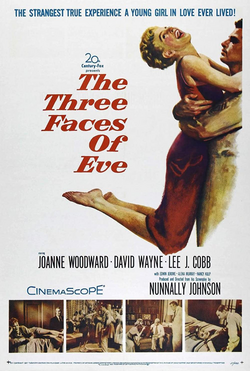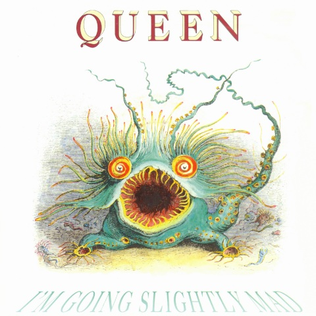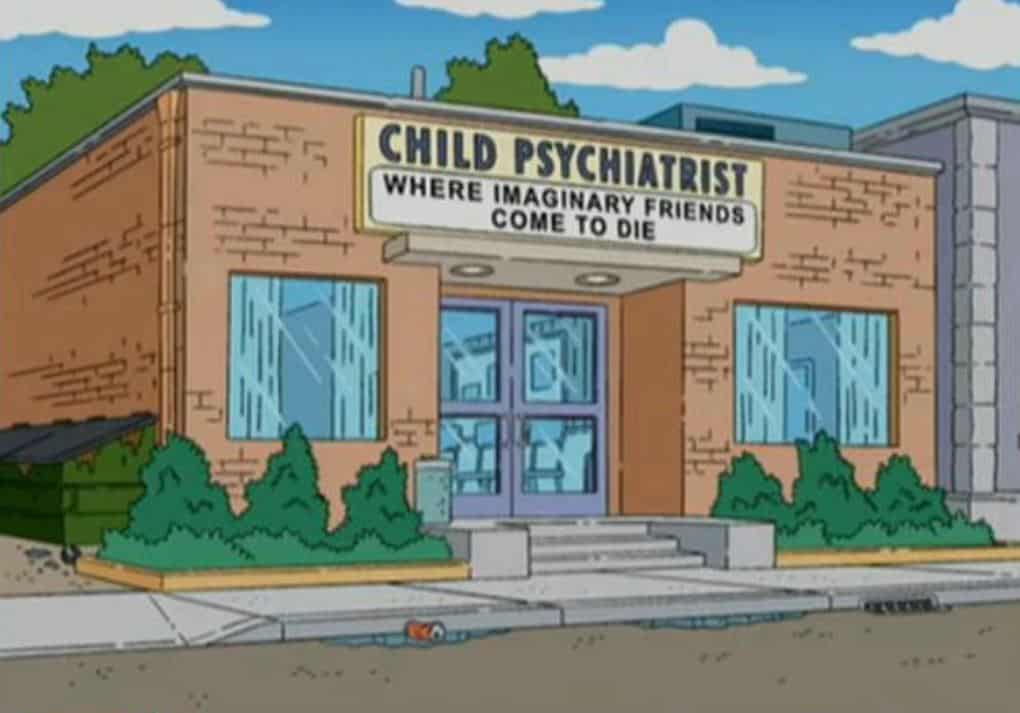Monday, 3 November 2014
more on cannabis decriminalisation
After California decriminalized marijuana, teen arrest, overdose and dropout rates fell. Read more here.
no direct link between being tough on drugs and tackling the problem
The UK government’s comparison of international drug laws, published on Wednesday last week, represents the first official recognition since the 1971 Misuse of Drugs Act that there is no direct link between being “tough on drugs” and tackling the problem. The full report is available here.
Wednesday, 22 October 2014
preventing suicide
"Every 40 seconds a person dies by suicide somewhere in the world. “Preventing suicide: a global imperative” is the first WHO report of its kind. It aims to increase awareness of the public health significance of suicide and suicide attempts, to make suicide prevention a higher priority on the global public health agenda, and to encourage and support countries to develop or strengthen comprehensive suicide prevention strategies in a multisectoral public health approach."
The full WHO report is available here:
Preventing Suicide - A Global Imperative
The full WHO report is available here:
Preventing Suicide - A Global Imperative
benzodiazepine use and Alzheimer's - is there a link?
A research article available from the link below seems to suggest that there is:
benzodiazepine use and risk of Alzheimer's
benzodiazepine use and risk of Alzheimer's
depression in pregnancy and the postpartum period
A July 2014 report on the antidepressant treatment of this phenomenon is available at this link:
Antidepressant treatment of depression in pregnancy
Antidepressant treatment of depression in pregnancy
World Alzheimer Report 2014
"The World Alzheimer Report 2014, Dementia and Risk Reduction: An analysis of protective and modifiable factors critically examines the evidence for the existence of modifiable risk factors for dementia.
It focuses on sets of potential modifiable risk factors in four key domains: developmental, psychological and psychosocial, lifestyle and cardiovascular conditions. The report makes recommendations to drive public health campaigns and disease prevention strategies.
The report which was researched and authored by Prof Martin Prince, Prof Emiliano Albanese, Dr Maëlenn Guerchet and Dr Matthew Prina on behalf of the Global Observatory for Ageing and Dementia Care which is hosted at the Health Service and Population Research Department, King’s College London."
The full report is available at this link:
Tuesday, 21 October 2014
St. Catherine of Siena
This 14th century Italian nun (1347-1380) has been described by some as the first recorded case of anorexia nervosa. She ate nothing for long periods of time, her only sustenance coming from communion wafers.
"For many years she had accustomed herself to so rigorous an abstinence, that the blessed eucharist might be said to be almost the only nourishment which supported her. Once she fasted from Ash Wednesday till Ascension-day, receiving only the blessed eucharist during that whole time."
taken from Vol. IV of "The Lives or the Fathers, Martyrs and Other Principal Saints" by the Rev. Alban Butler, the 1864 edition published by D. & J. Sadlier, & Company.
This extreme example of fasting was frowned upon by clergy, and her own priest-confessor ordered her to eat properly. Catherine replied that she could not do so, describing the situation as an illness. The condition worsened to such an extent that by the beginning of 1380 she could neither eat not swallow water.
"With the new year a great bodily change came over her, but still she struggled to continue her work, though now it was pain to her not only to eat, but even to swallow a sip of water, so that she was tormented with thirst."
taken from "St. Catherine of Siena" by Alfred W. Pollard (1919), published by Sidgwick & Jackson, London, England.
By the beginning of February she could no longer use her legs.
"She was so emaciated that her bones could be easily counted. She appeared withered, and her face worn and sunk, and it no longer presented the same beauty as formerly........Her body was then reduced to the state in which painters represent death; her limbs seemed to be those of a mere skeleton covered with a transparent skin. Her strength was so annihilated that she could not turn herself from one side to the other."
taken from "Catherine of Siena - A Biography" by Josephine E. Butler (1894; 3rd edition), published by Horace Marshall & Son of London, England.
Ultimately the condition led to her death in Rome on 29 April 1380.

"For many years she had accustomed herself to so rigorous an abstinence, that the blessed eucharist might be said to be almost the only nourishment which supported her. Once she fasted from Ash Wednesday till Ascension-day, receiving only the blessed eucharist during that whole time."
taken from Vol. IV of "The Lives or the Fathers, Martyrs and Other Principal Saints" by the Rev. Alban Butler, the 1864 edition published by D. & J. Sadlier, & Company.
This extreme example of fasting was frowned upon by clergy, and her own priest-confessor ordered her to eat properly. Catherine replied that she could not do so, describing the situation as an illness. The condition worsened to such an extent that by the beginning of 1380 she could neither eat not swallow water.
"With the new year a great bodily change came over her, but still she struggled to continue her work, though now it was pain to her not only to eat, but even to swallow a sip of water, so that she was tormented with thirst."
taken from "St. Catherine of Siena" by Alfred W. Pollard (1919), published by Sidgwick & Jackson, London, England.
By the beginning of February she could no longer use her legs.
"She was so emaciated that her bones could be easily counted. She appeared withered, and her face worn and sunk, and it no longer presented the same beauty as formerly........Her body was then reduced to the state in which painters represent death; her limbs seemed to be those of a mere skeleton covered with a transparent skin. Her strength was so annihilated that she could not turn herself from one side to the other."
taken from "Catherine of Siena - A Biography" by Josephine E. Butler (1894; 3rd edition), published by Horace Marshall & Son of London, England.
Ultimately the condition led to her death in Rome on 29 April 1380.

evolutionary psychiatry
This website has a load of really interesting articles regarding evolutionary psychiatry:
evolutionary psychiatry
Examples include:
evolutionary psychiatry
Examples include:
Is Gluten Causing Your Depression?
Tuesday, 23 September 2014
Monday, 15 September 2014
another reason not to take benzodiazepines
Research is indicating that the long-term use of benzodiazepines increases the risk of Alzheimer's disease development:
Long-term use of anxiolytics linked to Alzheimer's disease
Long-term use of anxiolytics linked to Alzheimer's disease
latest research on the genetics of schizophrenia
An article from Psychiatric News on the latest research on the genetics of schizophrenia:
Dozens of schizophrenia risk loci identified
Dozens of schizophrenia risk loci identified
Wednesday, 10 September 2014
an experiment in dementia care
A video about the village of Hogewey in the Netherlands, where every resident has severe dementia:
Hogewey
Hogewey
Monday, 8 September 2014
yet another full film
Based on the only novel by American writer Sylvia Plath, which was semi-autobiographical. Plath committed suicide a month after the novel was first published in the United Kingdom (1963).
The Bell Jar

The Bell Jar

another full film
This time, a film from 1957 about a woman with a diagnosis of dissociative identity disorder:
The Three Faces of Eve

The Three Faces of Eve

Tuesday, 26 August 2014
fatty acids and suicide risk
Lowered levels of a specific fatty acid has been found to increase the risk of suicide:
fatty acids and suicide risk
fatty acids and suicide risk
Thursday, 21 August 2014
quotations on madness 7
If you know someone who’s depressed, please resolve never to ask them why. Depression isn’t a straightforward response to a bad situation; depression just is, like the weather. Try to understand the blackness, lethargy, hopelessness, and loneliness they’re going through. Be there for them when they come through the other side. It’s hard to be a friend to someone who’s depressed, but it is one of the kindest, noblest, and best things you will ever do. ~ Stephen Fry


second moon-walker on depression and Robin Williams
Buzz Aldrin, the second man to walk on the moon, has posted on his Facebook page about his own experiences with depression and the suicide of Robin Williams:
I regarded Robin Williams as a friend
I regarded Robin Williams as a friend
copy cat suicides
A suicide by a young person is linked to a significant increase in subsequent in "copy-cat" self-inflicted deaths. This article tells more:
Are Copycat Suicides Real?
Are Copycat Suicides Real?
Monday, 11 August 2014
flu in pregnancy increases the risk of bipolar disorder in the child
A research article which tells how pregnant mothers’ exposure to the flu was associated with a nearly fourfold increased risk that their child would develop bipolar disorder in adulthood:
flu in pregnancy and bipolar disorder
flu in pregnancy and bipolar disorder
neuropsychiatry of anorexia nervosa
Here is a link to some new research on what is happening in the brain in cases of anorexia nervosa:
Novel Research in the Neuropsychiatry of Anorexia Nervosa
Novel Research in the Neuropsychiatry of Anorexia Nervosa
Wednesday, 6 August 2014
heroin addiction
An article about heroin addiction in the United States:
Heroin Addiction: A Chronic Disease, Like Any Other
Heroin Addiction: A Chronic Disease, Like Any Other
Advances in Psychiatry: Understanding Indigenous Cultures
Here is an interesting article by a psychiatrist working in New Zealand:
Advances in Psychiatry - Understanding Indigenous Cultures
Advances in Psychiatry - Understanding Indigenous Cultures
Tuesday, 5 August 2014
Monday, 4 August 2014
Psychocracy and Community
Those of you who know me personally will recognise that I have no religious leanings whatsoever. However, here is a sermon from a minister about the rise of psychiatry and its association with the drugs industry. It's definitely worth reading:
Psychocracy and Community
Psychocracy and Community
psychiatric drugs and informed consent
Do patients who are prescribed psychiatric drugs really give informed consent? Are they told the potential negative effects of the drugs, or are they just told the positives? Here's a link to an article that may answer those questions:
A Model Consent Form for Psychiatric Drug Treatment
A Model Consent Form for Psychiatric Drug Treatment
Antipsychotics Linked to Cognitive & Memory Impairments
Finnish reseachers report in Schizophrenia Research that antipsychotic use is associated with cognitive and memory impairments. The University of Oulu team studied forty people diagnosed with schizophrenia and 73 controls at the ages of 34 and 43 years. “Higher antipsychotic dose-years by baseline were significantly associated with poorer baseline performance in several dimensions of verbal learning and memory, and with a larger decrease in short-delay free recall during the follow-up,” they observed.
“The use of high doses of antipsychotics may be associated with a decrease in verbal learning and memory in schizophrenia years after illness onset,” the researchers concluded. “The results do not support the view that antipsychotics in general prevent cognitive decline or promote cognitive recovery in schizophrenia.”
Tuesday, 29 July 2014
violence and mental health
This week in class I was asked about violence associated with mental illness. People diagnosed with a mental illness are much more likely to be victims of homicide than perpetrators. This article reinforces this:
Mentally ill people are not killers. Angry people are.
Mentally ill people are not killers. Angry people are.
the humour of mental health issues
Just in case you thought there was nothing funny about mental health issues, here is a whole bunch of videos that might change your mind:
Stand Up for Mental Health
Stand Up for Mental Health
Monday, 28 July 2014
acute dystonic reaction
Acute dystonic reaction is a side effect of antipsychotic drugs. This short video shows what it looks like:
Acute Dystonic Reaction
Acute Dystonic Reaction
nursing management of aggression
Another link to an article from Nursing Planet, this time about the nursing management of aggression:\
Nursing Management of Aggression
Nursing Management of Aggression
Thursday, 24 July 2014
more on the development of the vibrator for the treatment of female hysteria
A really good article on this "touchy" but "penetrating" subject:
Female Hysteria, Victorian era doctors and the vibrator
Female Hysteria, Victorian era doctors and the vibrator
another celebrity heroin death
Just in case you missed it, here is an article about the latest celebrity heroin overdose:
Peaches Geldof was a heroin addict
Peaches Geldof was a heroin addict
Wednesday, 23 July 2014
nursing management of hallucinations and delusions
Hallucinations and delusions are two of the diagnostic signs of a psychotic illness. Learn more about how mental health nurses manage both of these phenomena here:
Nursing Management of Delusions and Hallucinations
Nursing Management of Delusions and Hallucinations
neuroleptic malignant syndrome
More information on this potentially fatal side effect of antipsychotic drugs:
Neuroleptic Malignant Syndrome
Neuroleptic Malignant Syndrome
Tuesday, 22 July 2014
musical madness 7
Queen's tribute to madness, I'm Going Slightly Mad, was the second single released from their album Innuendo, in 1991.


catatonic schizophrenia
This short video gives you some idea of the waxy flexibility associated with catatonic schizophrenia, as well as the nature of some of the hallucinations that someone with schizophrenia might experience.
Further information on catatonic schizophrenia can be found here:
Catatonic disorders
nursing care in ECT
If you do come across ECT being used while on placement, this link will give you an indication of the nurse's role in the treatment:
Nursing Care in ECT
Nursing Care in ECT
inflammation during pregnancy increases risk of schizophrenia in children
Recent research has found that inflammation in the pregnant woman significantly increases the risk of schizophrenia development in offspring. Discover more here:
http://www.sciencedaily.com/releases/2014/07/140708121746.htm
http://www.sciencedaily.com/releases/2014/07/140708121746.htm
Thursday, 17 July 2014
recovery from schizophrenia without medication
Whether people who have been diagnosed with schizophrenia can recover from the illness is a topic of hot debate in the realms of psychiatry. Whether they can recover with the use of psychotropic medication is even more controversial. This video suggests that it can be achieved:
Take These Broken Wings -- Recovery from Schizophrenia without Medication
Take These Broken Wings -- Recovery from Schizophrenia without Medication
Wednesday, 16 July 2014
Subscribe to:
Comments (Atom)












































